Project to tackle lack of diversity in photographs of medical conditions

A shortage of photography showing medical conditions on darker skin tones will be addressed as part of a project led by UWE Bristol.
Funded by NHS England, the REFRAME initiative aims to capture digital images of conditions on people with a wide range of skin tones to create a diverse photo library available for free to clinicians, educators and the general public.
Members of the public are being invited to attend one of 30 photography sessions being held at venues across Bristol this year to capture close up images of a range of health conditions - from rashes and scars to amputations and jaundice.
It is hoped the comprehensive new image library, hosted on the NHS England website, will reduce health inequalities by lowering the possibility of misdiagnosis that can occur in cases where conditions present differently on darker skin compared with lighter skin (e.g. meningitis and seborrheic dermatitis).
The project team say the photographs taken of the volunteer participants will be helpful for identifying conditions in all skin tones, leading to faster diagnosis and offering patients better experiences of healthcare.
Project lead Debbie Hubbard, a senior lecturer in physiotherapy at UWE Bristol, began investigating the lack of diversity in healthcare imagery after she and colleagues noticed an underrepresentation of darker skin tones in academic medical textbooks and online.
She said: “When I look for pictures of different medical conditions on different skin tones, they are biased towards people with white skin. One example is jaundice - there’s not many, if any, pictures of that condition on darker skin tones. Generally on Google Images, you may see one or two people with darker skin tones on the medical photos, but they're mostly white. We thought this could be a project that could help reduce that gap and create a library of more inclusive healthcare images.
“It’s a huge problem - if we don't have those images it means healthcare professionals may not be able to recognise the signs of disease and illness. Some conditions do present quite differently in different skin tones, for example chickenpox. This causes people to have delayed diagnosis, misdiagnosis and potentially receive incorrect treatment or no treatment. This ultimately contributes to people having a poor experience of healthcare.”
Debbie said the REFRAME initiative, which began with a pilot photo session in St Paul’s on Wednesday 24 January, has been well received by the diverse communities of Bristol.
She said: “The response has been really positive. This is a collaboration with people in the community - they are essential for it to succeed and we can't do this project without them. It's for them.
“Potentially, we can impact positively on health inequalities by creating this new resource.”
All images taken of participants’ medical conditions (photographed on an anonymous basis) will be independently verified by medical professionals before being added to the catalogue of photographs and published online. In all, the project team are hoping to capture images of 70 different medical conditions.
The project has received almost £80,000 from NHS England and is being supported by Medical Illustration, a team of medical photography experts based at University Hospitals Bristol and Weston NHS Foundation Trust.
A second strand of the REFRAME project, running this year alongside the main part of the initiative, will focus on creating more diverse images of the healthcare workforce to capture pictures of a wide range of healthcare professionals working in different settings to increase the visibility of underrepresented groups.
Debbie said: “If I want to put a picture on my PowerPoint slide of say, a physio working in the intensive care unit, generally the physios and the patients in those pictures tend to be white, non-disabled people. This is about being inclusive and ensuring the community is represented.”
Sarah Todd, Senior Specialist in Education for Urgent and Emergency Care at NHS England in the South West, said: “This is a landmark project to improve care for patients, by supporting healthcare professionals in clinical situations and allowing educators to broaden their teaching for healthcare students. And more directly, anyone will be able to use the images as a source of reference if they’re concerned about their own health.”
For more information, to offer a community space for a pop up photo shoot, or to sign up to be photographed visit https://www.reframe-diverseimages.co.uk, or email diversifyingimages@uwe.ac.uk. Further details can be found on X by following @ReframeImages
Related news
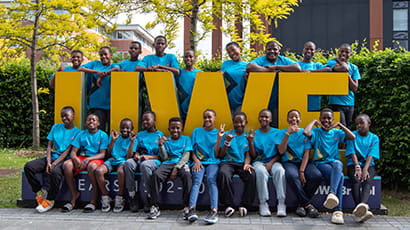
09 September 2025
Project Zulu choir celebrates another record-breaking tour
Nearly £37,000 was raised during three unforgettable weeks of the 2025 Project Zulu choir tour – setting a new fundraising record since the tour began.
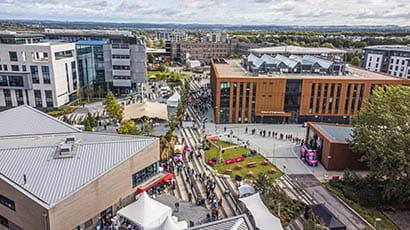
09 May 2025
UWE Bristol among first universities in UK to introduce sanitary waste bins in male toilets
UWE Bristol is among the first universities in the UK to introduce sanitary waste bins in male toilets for the disposal of incontinence products.

19 March 2025
Professor plays key role in formation of Europe’s first conference for minoritised life scientists
A professor from UWE Bristol has played a leading part in organising Europe’s first conference supporting scientists from marginalised and underrepresented backgrounds.
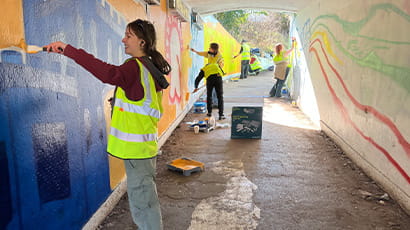
07 March 2025
UWE Bristol and Ashton Park School transform urban landscape near university campus
Students bring creativity and a splash of colour to a well-used city underpass by painting a new mural celebrating diversity and inclusivity.
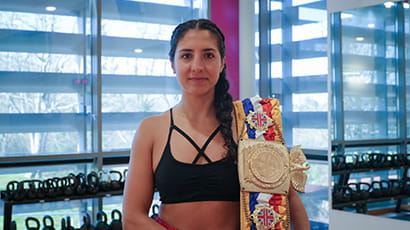
06 March 2025
Inspiring UWE Bristol alum fights for equality in her sport to empower other women
A UWE Bristol alum who became the UK's first female to compete in Burmese bareknuckle boxing has shared how competing in a male-dominated sport has motivated her to empower other women.
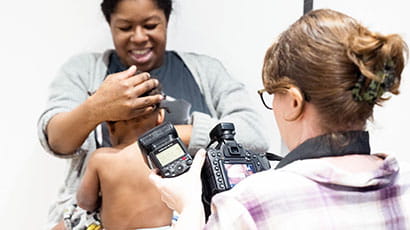
06 February 2025
Opinion: ‘We’re ensuring people have access to diverse images for healthcare’
Flicking through the pages of academic medical textbooks back in 2022, our team spotted a surprising omission: a stark absence of images of health conditions on darker skin tones.
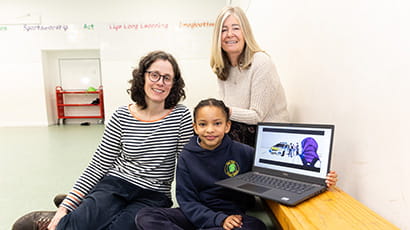
03 February 2025
Groundbreaking UWE Bristol project based on children’s lived experiences of racism in the UK set to transform police training
UWE Bristol researchers have worked with over 1,000 primary-aged children to explore everyday experiences of racism to inform future police training.
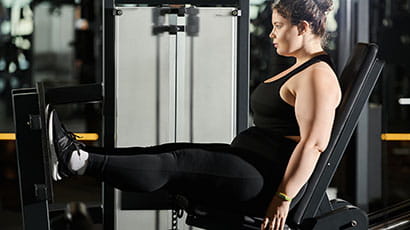
30 January 2025
Women exercising in gyms face barriers including body image and harassment, study finds
Women exercising in gyms often feel judged for their appearance and performance, leading to a persistent sense of inadequacy, according to a new study.
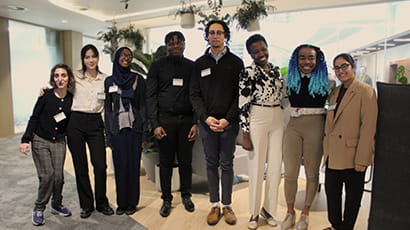
22 January 2025
Talent collaboration programme UWE Futures expands to support diversity in Bristol's legal and creative sectors
UWE Bristol's talent programme, UWE Futures, which offers paid work experience to global majority students, has expanded in its second year to include more legal firms and a leading organisation in Bristol’s creative sector.
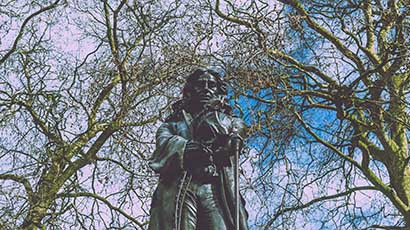
15 January 2025
Pupils’ work produced in anti-racism lessons to be displayed at Bristol Cathedral
Work produced by school children in response to specially designed lessons on anti-racism will go on show at an exhibition at Bristol Cathedral.
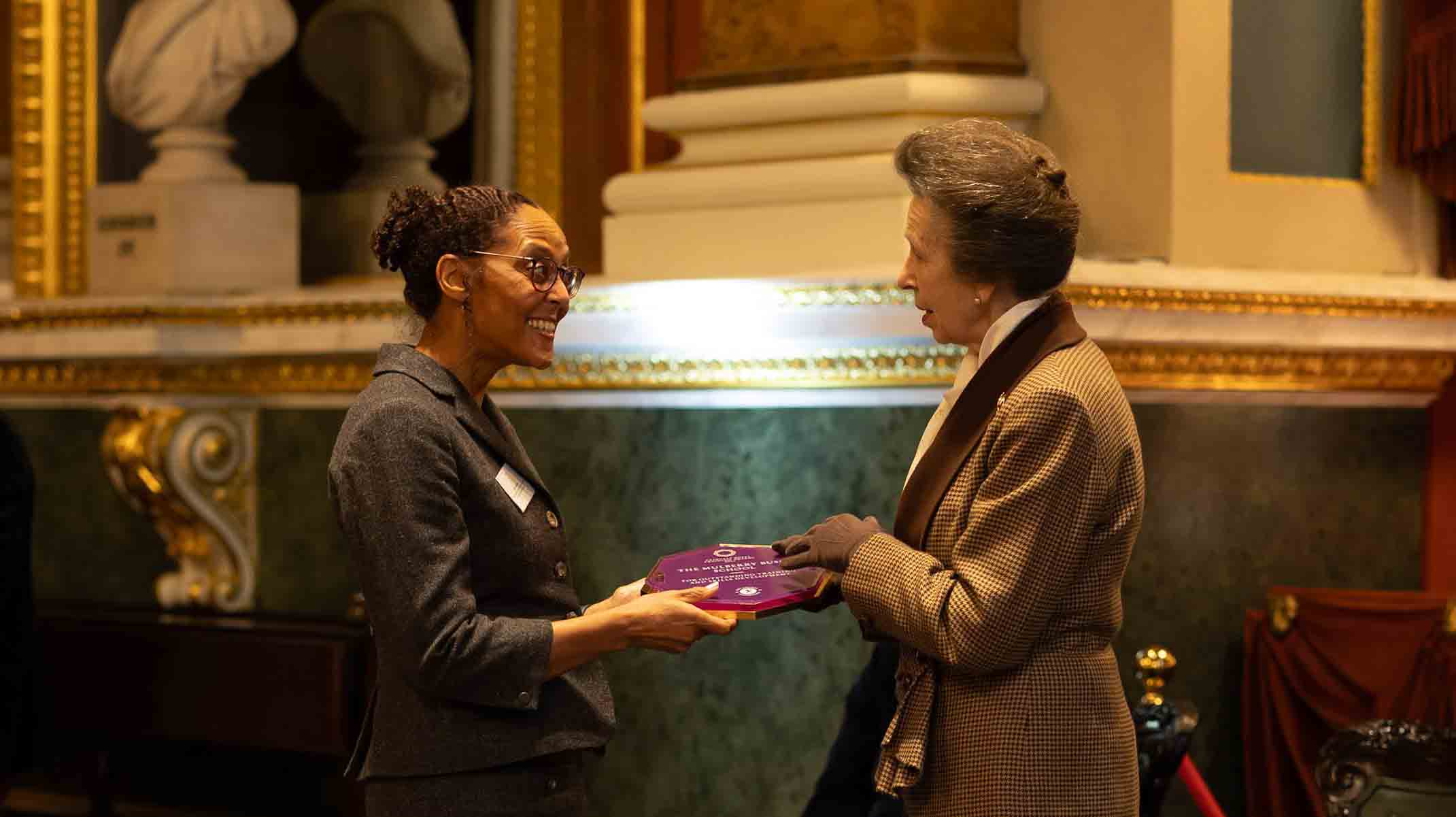
17 December 2024
‘One of a kind’ course accredited by UWE Bristol recognised with Princess Royal Training Award
A foundation degree accredited by UWE Bristol has been awarded a prestigious City & Guilds Princess Royal Training Award.
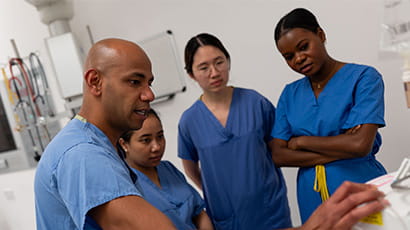
02 December 2024
Project led by UWE Bristol launches new resources to tackle racism and discrimination in healthcare education
A range of inclusive training and learning resources to tackle racism and discriminatory behaviour in healthcare have been launched by UWE Bristol.
You may also be interested in

Media enquiries
Enquiries related to news releases and press and contacts for the media team.
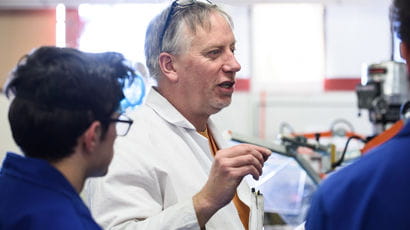
Find an expert
Media contacts are invited to check out the vast range of subjects where UWE Bristol can offer up expert commentary.
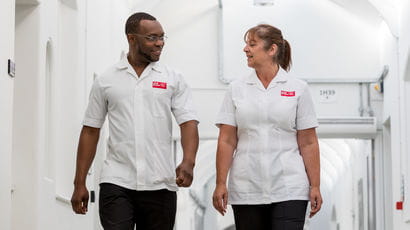
School of Health and Social Wellbeing
The School of Health and Social Wellbeing is home to all our courses and research related to this varied and rewarding sector.






